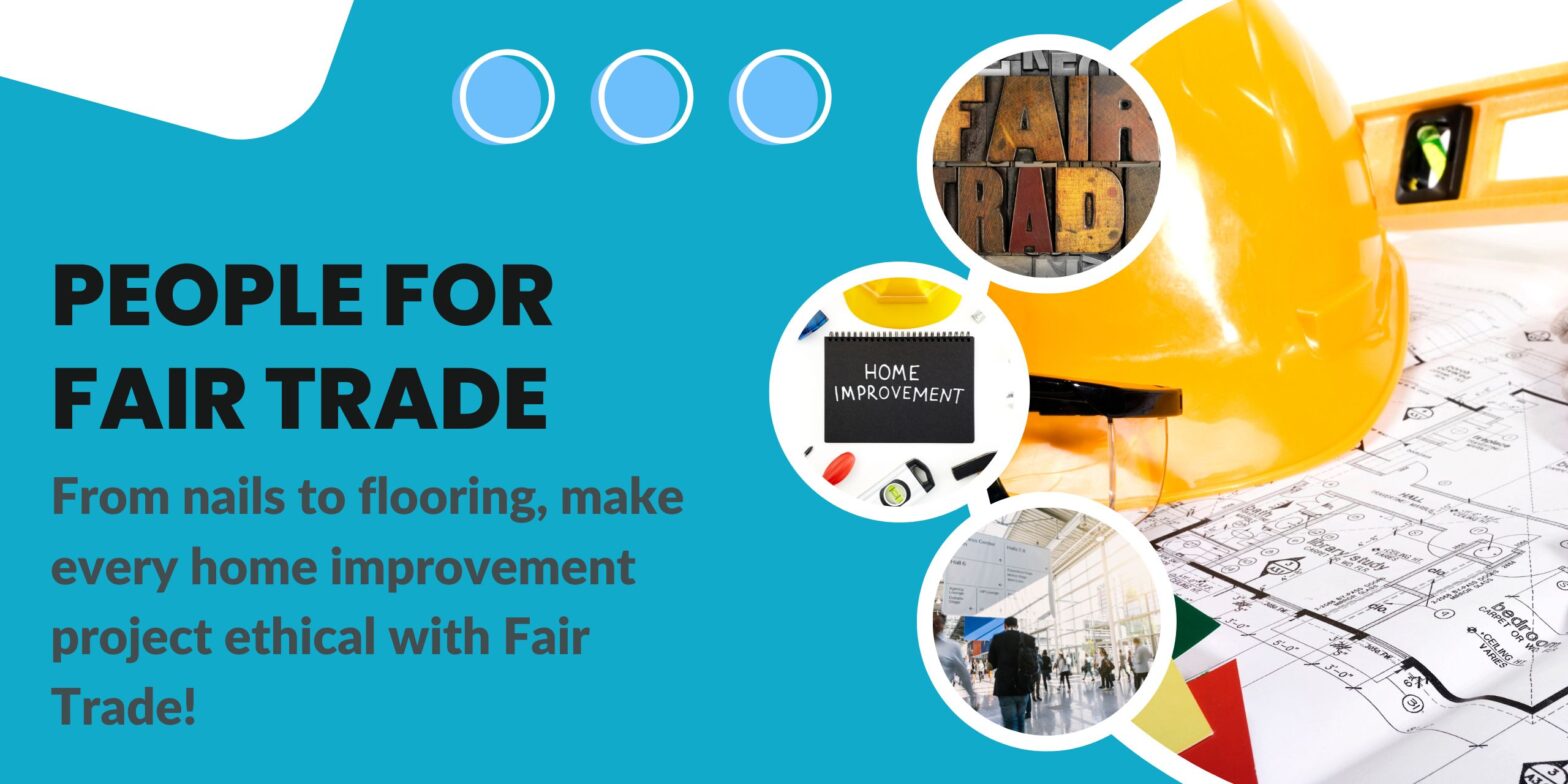Construction materials, tools, and equipment are just a few of the many goods produced and sold in the multibillion dollar home improvement market. Although this sector is important to the global economy, it is not without flaws. Many workers in the home renovation industry, particularly those in the global South, experience exploitation, unfavorable conditions of employment, and low wages.
This is where Fair Trade steps in. Fair Trade is an international company that advocates for fair trade policies and tries to safeguard the rights of workers and producers worldwide. You can support fair labor practices and give voice to workers all over the world by purchasing Fair Trade certified goods for your home improvement projects.

Fair Commerce and Home Repair
Fair Trade’s principles are founded on the notion that all workers should be assured a secure and respectful workplace, a livable wage, and the right to organize unions and pursue other forms of mass bargaining in defense of their interests. These concepts can be applied to a production and sale of home improvement goods, ensuring that employees are treated fairly and ethically all through the supply chain.
Products with the Fair Trade label have been independently verified as having been made using labor standards and environmental best practices that meet or exceed international norms. For instance, Fair Trade certification guarantees that workers receive a reasonable wage for their labor, that they work in secure and healthy environments, and that they have the right to collectively organize and negotiate to their employers.
You can rest easy knowing that you’re using top-notch supplies when you renovate your house with Fair Trade-certified products. You can rest assured that your home improvement project will last and won’t damage the environment because Fair Trade certification demands that products comply with particular requirements for quality, durability, and sustainability.
Global Labor Empowerment
In the remodeling sector, where many workers face exploitation and poor working conditions, Fair Trade’s goal to protect the rights of workers and improve their standard of living is particularly important. Fair Trade has served to empower workers in the industry by supporting the establishment of worker cooperatives, encouraging collective bargaining, and providing education and training to employees.
For instance, Fair Trade has encouraged the development of worker-owned cooperatives in the home renovation sector, giving employees a larger voice in company affairs and a stake in the company’s financial success. This model has been effective in many regions around the globe, including Latin America and Africa, and has helped to improve the living conditions for workers.
Collective bargaining, which enables employees to negotiate with their employers for improved pay, benefits, and working circumstances, has also received support from Fair Trade. Bargaining has been shown to be an efficient means of enhancing workers’ livelihoods, and Fair Trade has been instrumental in supporting this practice.
Supporting these efforts and promoting positive change in the industry can be as simple as selecting Fair Trade-certified goods for your home improvement projects. By choosing goods that have been manufactured under equitable and moral labor conditions, you are assisting to support workers and their families globally.
Effects on Consumers
As customers, we can insist that businesses treat their employees fairly and ethically. When making improvements to our homes, we can convey a message to businesses about the significance of fair working conditions and environmentally friendly manufacturing by opting for Fair Trade certified products.
Consumer demand for Fair Trade certified goods in the home improvement sector has been met by many businesses. For instance, a number of big retailers now sell flooring and lumber that has been certified as Fair Trade. This is a start in the right direction, but there is still work to be done.
We can contribute to the development of a world where workers are treated fairly and ethically and where we can be sure that the goods we use in our homes are made in a way that doesn’t hurt people or the environment by supporting Fair Trade and purchasing Fair Trade-certified products.
Conclusion
Choosing Fair Trade-certified products for your home renovation needs is a simple but powerful means of advocating fair and ethical employment practices and to help empower workers worldwide. By backing Fair Trade, we can make sure that employees get a living wage, are protected from harm on the job, and have the freedom to join unions and negotiate for better working conditions.
In addition, we can rest assured that we are using high-quality, environmentally friendly materials for our house renovation project if we stick to using only Fair Trade-certified products. By making a deliberate effort to choose Fair Trade, we could indeed help to create a more just and sustainable world.
As customers, we can insist that businesses treat their employees fairly and ethically. By selecting Fair Trade-certified goods, we can contribute to developing a market demand for environmentally friendly and ethical products, which can result in positive change in the industry.
Fair Trade is not a panacea for the issues faced by workers in the home improvement sector, it is important to remember this. To guarantee that workers are treated equitably and that their rights are upheld, much more needs to be done. However, by choosing Fair Exchange products, we can make a tiny yet significant contribution to this endeavor.
In conclusion, if you’re thinking about doing some house renovations, think about using Fair Trade products. By doing so, you can help to promote equitable and moral labor practices, support sustainable production methods, and encourage workers globally. Together, we can build a world in which all workers are treated fairly and with respect, and in which all homes are constructed with the well-being of both the occupants and the environment in mind.

